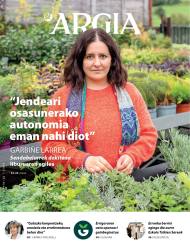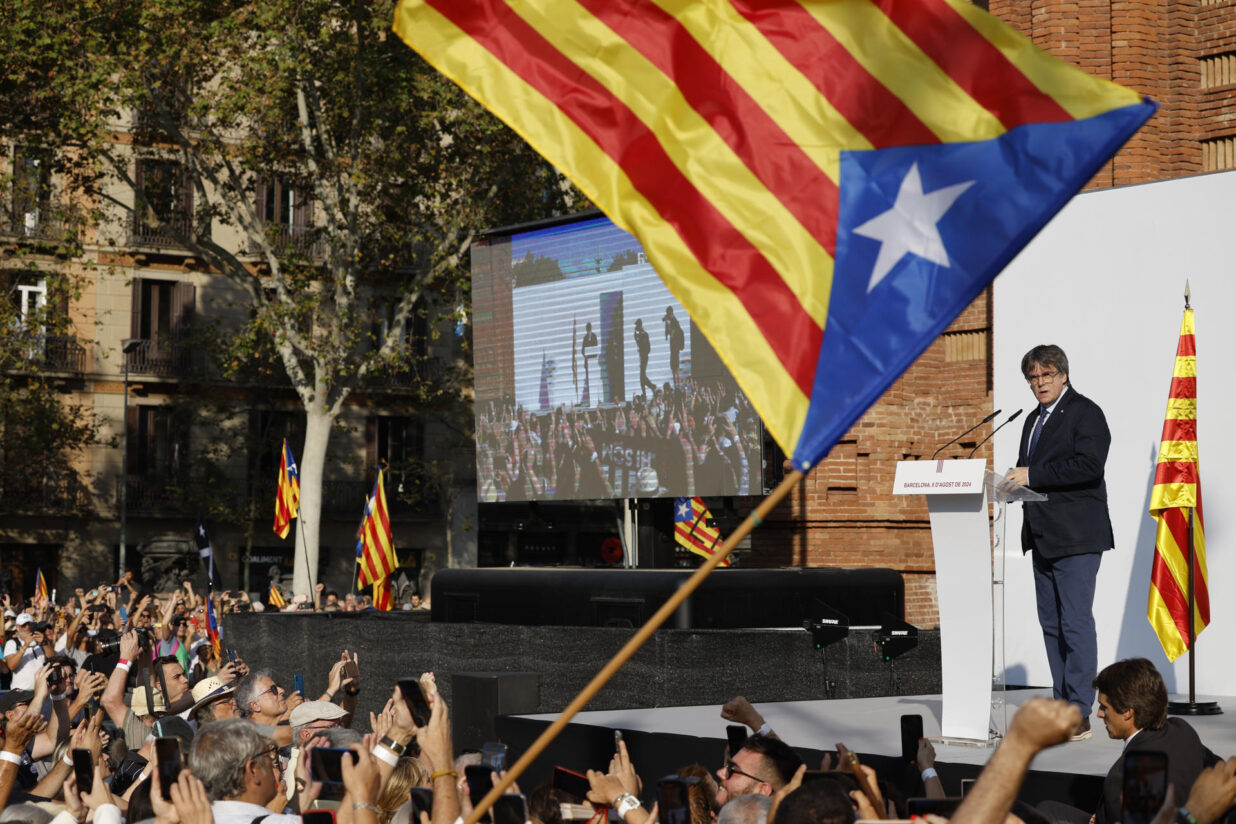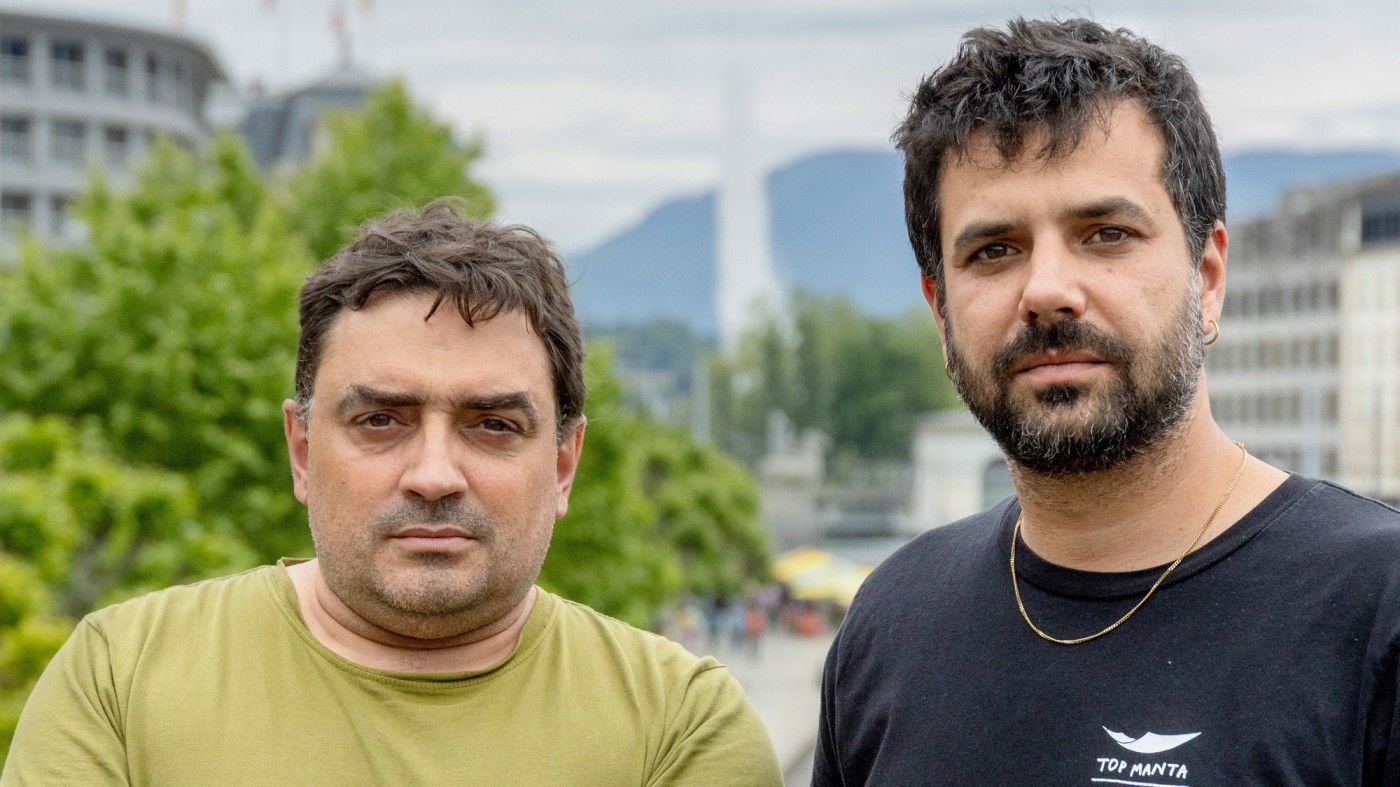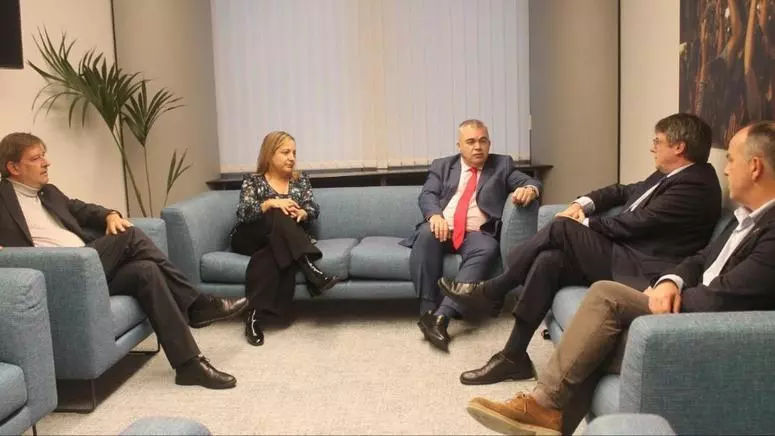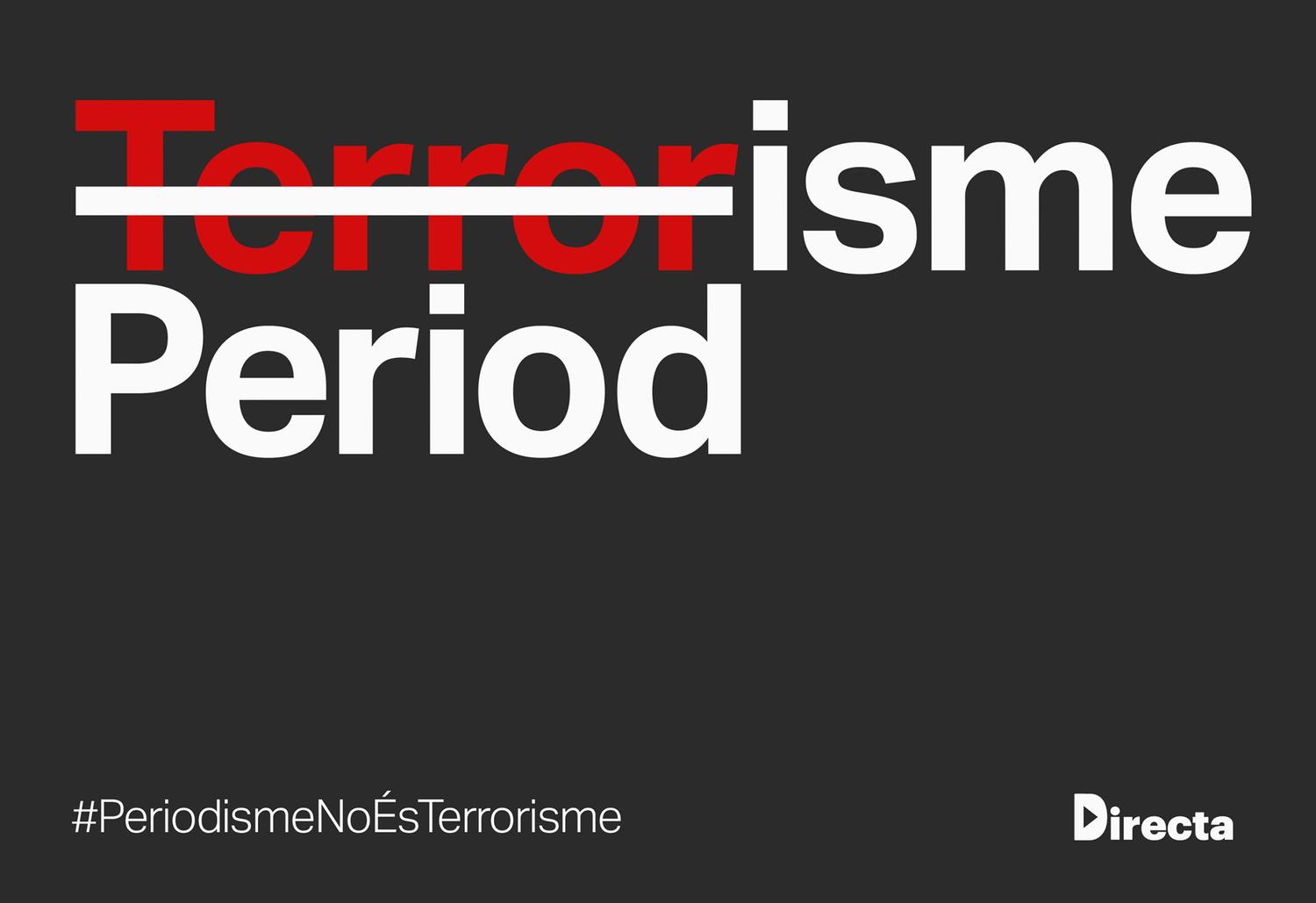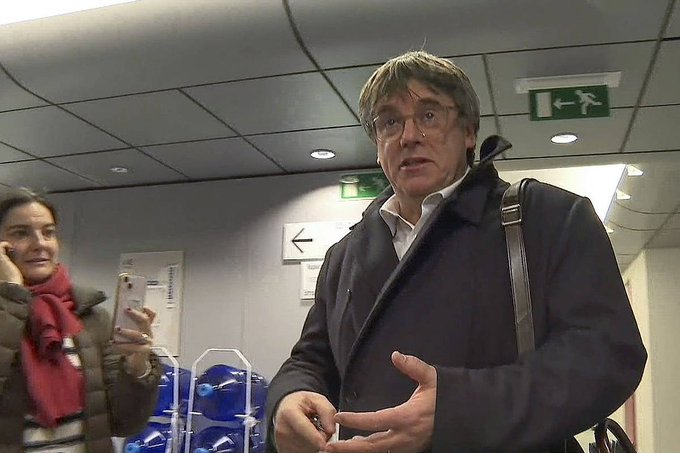“I have come out of jail as republican and independentist as before, but more feminist”
- Between 2012 and 2015, Carme Forcadell (Xerta, 1956) was, together with Omnium Cultural, president of the Catalan National Assembly ANC, a driving force for the most important social mobilizations in Catalonia in the last decades. He was appointed President of the Parliament of Catalonia in October 2015 and was locked up in March 2018. After three years in prison, he was released by pardons approved by the Government of Spain at the end of June.

To start with, how are you?
OK. I always say I've lived again. I enjoy little things, but I still struggle to sleep at night, I wake up often. When I left prison I was happy, but happiness cannot be total: there are still thousands of retaliated people, including those who are exiled, the friend Marta Rovira, President Puigdemont, and Toni Comín, Clara Ponsatí, Anna Gabriel and Lluis Puig.
How do you remember the first day he was locked up?At first it was a
terrible shock, and then I felt a grief and a great anger. He was clear that he didn't want to be a prisoner and off. I looked at the women who lived with me, and I became interested in them, and so I learned how to give importance to little things. I've come out of jail as republican and independentist as before, but more feminist. Because I have seen more than ever that only the solidarity of women makes us stronger. The most important revolution of the 21st century will certainly be feminist.
In recent years it has denounced the double exclusion suffered by women in prison n.Las living a double conviction: a sentence imposed by the judge and a stay in prisons designed, designed and
built for men, being women. Society is a male chauvinist and, therefore, prisons are also a male chauvinist. For example, in Mas de Enric prison, there was no hair dryer. Sports facilities and paid television channels were designed for men and only men were in the kitchen and in the best-paid workplaces or in which decisions were made. We managed to change all of this.
What are the women you've met?Most were
a criminal, but also a victim. And the question is, if they hadn't been victims, would they have been criminals? They have had a very hard life and have often lacked two important pillars: family and education. There are those who, in addition, do not see themselves able to live outside and prefer to be locked up, at least because they are far from their aggressors and have warm food on the table.
You were in Madrid in Alicalá-Meo and in Catalonia in Mas de Enric. Was it hard for you to adapt to change?
I always say that I am lucky, because it was Toulouse-Meco who asked for the first prison and also, because it coincided with Dolors Bassa: we were two, in front of the regime of the Puig de las Bassas or the Mas de Enric, which was “a viguera prison”. But the most significant difference is that Toulouse-Meco is the jail of women who put us in a male prison in Catalonia. The change was complicated, yes, we arrived from a prison full of trees, fields and flowers, which we could easily move around the entire enclosure. In Madrid we were in a module of respect with open doors and blinds, my neighbors were women who were first incarcerated or with small economic crimes with permits to leave outside on weekends. Instead, the prison of Mas de Enric is male and has a single module of women. It has many cements, too many walls, and only with the help of an official can the doors that are always closed be crossed. Security measures are demanding.
.jpg)
In November 2016 I last spoke to you in an interview in Berria: You were president of the Parliament of Catalonia and the president of Spain was Mariano Rajoy. He spoke of the need for a government ready for dialogue in the Spanish State to resolve the conflict in Catalonia and Spain. What do you think of the government of Pedro Sánchez?
I have no confidence in Pedro Sánchez’s government, but it is clear that it is closer to dialogue and negotiation, even if the wager is strategic. But for the first time we have succeeded in getting the Spanish Government to recognise that there is a political conflict between Catalonia and Spain and to sit at the intergovernmental negotiating table to seek a political solution. Furthermore, they have accepted pardons, which has also been a strategic commitment to correct the errors of Spanish justice before the European Union. In any case, they are the first step: more political decisions are now needed to end the repression and resolve the conflict, the amnesty law and the referendum on self-determination.
He said then that the unilateral referendum of President Puigdemont was the only landmark at that time, after eighteen requests to the Spanish Government for a negotiating process for a binding consultation such as that of Scotland, it was clear to us that the only path
was the unilateral referendum. It is clear, however, that we did not believe that the State would respond with violence and with this brutal, cruel and unthinkable repression. He knew that the quality of democracy in the Spanish State was low, but he could not imagine that the Spanish police were able to attack the citizens by putting the ballot box in the ballot box.
“More political decisions are now needed to end the repression and resolve the conflict, amnesty law and referendum on self-determination”
Well, repression is not a new issue in the Spanish State. In Euskal Herria it has been denounced for a long time.
Yes, although we knew the rights violated in the Basque Country, we did not think it would be repeated in Catalonia. Much less for going to vote for people. It was unthinkable to attack the citizens who went to vote peacefully. And then I did not expect that by adopting a parliamentary debate I would have been sentenced to eleven and a half years in prison. Finally, their repression is only worth reinforcing the desire for independence of the Catalan people.
The unilateral route has not worked. Do you think independence leaders went too far?
No, we did what most of our people claimed: to set ballot boxes to decide the future. We did a referendum on self-determination, which was a collective success, which we will always remember and demand. Then we come across a State that applied all its repressive force.
There are those who believe that the strategy was lacking following the proclamation of the Catalan Republic. What do you think?
After the fall of 2017, a violent repression began against the independentists, with imprisonment and exile, after which it was essential to build a shared strategy to advance towards the independence of Catalonia. We have managed to put the Spanish Government on the negotiating table to resolve the conflict between Catalonia and Spain politically. ERC has done a good job in this regard.
Pardons have been the key to their final freedom.
Personally, he didn't want to think about the pardons until I knew they were going to be channeled. Once collected, I was happy for citizenship, because I can do more out of jail than inside, and because the suffering of many families and people who love me has ended. When I got into prison, my mother told me a phrase that I'll never forget. “When you regain freedom, I will be dead.” And coping with it has been my motor endurance. It is also clear that pardon is a patch, a solution for nine incarcerated people. But the situation of the exiles and of the three thousand retaliations in Catalonia has not resolved.
“I did not expect that by adopting a parliamentary debate he would have been sentenced to eleven and a half years in prison”
What do you think of the negotiating table?
I'm totally skeptical, but it's inevitable. I cannot trust it, history shows that the Spanish Government systematically violates the commitments. However, we can never leave the banner of the conversation, which gives us credibility inside and outside of it. There are many Catalans who are not independentists and have to see that we are not going to abandon the path of dialogue. I am also curious about the proposal that the Spanish Government is going to put on the table. Our, of course, is amnesty and self-determination. And I know that Pedro Sánchez has said that this is never going to happen, that we are not going to vote. But he also said that incarcerated people would be punished, and that's not the case.
Before taking the leap into politics, you were president of the National Assembly of Catalonia (ANC). How do you see the independence movement today?
When he was president of ANC, the goal of the association was to unite the independence movement, the context was different, there was no majority in favor of independence and the government was autonomist. We got great milestones, I especially remember the success of the human chain, bringing the country together from end to end. The current context is different, I share some of the proposals made by ANC and others do not. In any case, the independence movement is still strong, and one example of this is that in the last elections more than 50 per cent of the votes were in favour of independence. The National Assembly of Catalonia should continue to encourage political representatives.
How have the differences between ERC and Junts affected the thousands of people they believed in the Puigdemont roadmap?
There have always been differences between the parties, as I said, that is why ANC was born: to build a space of consensus among those who shared the same objective. But when people are still being mobilized today, they are being mobilized. When the goal is shared, the differences are forgotten.
Without a clear roadmap, there are those who believe that the independence movement is orphan. Do you share?
In no case can the independence movement be orphaned, because what drives people, they are the protagonists. It is true that the repression received has been a hard blow, but the movement is still alive. The pandemic has also not made things easier, it has not allowed people to be mobilized to their liking. And yet this year’s Diada has been an extraordinary mobilisation, the most massive of the pandemic. I do not know anyone who has ceased independence four years ago.
Walk from a train station, two friends and a hug. This hug will be frozen until the next meeting. I'll come home, he'll stay there. There, too, will be free the painful feeling that injustice wants us to catch. Jesús Rodríguez (Santa Coloma de Gramenet, 1974) is a journalist,... [+]









